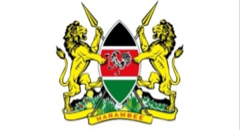Implementing the UN Bangkok Rules
Training for Trainers course
Omar co-facilitated a 'training of trainers' course on the UN Rules for the Treatment of Women Prisoners and Non-Custodial Sanctions for Women Offenders (AKA the Bangkok Rules).
The training was carried out over three days in Nairobi, Kenya with Prison and Probation staff working directly with female offenders. The training was part of a larger programme of work between the Swedish Prison and Probation Service (SPPS) and the Kenya Prison Service and Kenya Probation and Aftercare Service.
Working towards gender-sensitive probation in Kenya
At the end of the three days of training, the facilitators and some participants took part in some video interviews on the topic. These videos, created by Penal Reform International, can be found on their website here.
Challenges for women offenders in Kenya
Gender Sensitive Approach to Probation
Project Evaluation of the pilot project in Kenya
Delivered a comprehensive evaluation of Penal Reform International's pioneering , multifaceted project, focusing on the experiences of women completing non-custodial sentences, specifically Community Service Orders and Probation Orders in Kenya and the investigation of how to best adopt a gender-sensitive approach.
The evaluation consisted of both desk and field-based research, including interviews with a number of stakeholders in two pilot regions of Kenya. The resources created and interventions made during the project were assessed for Relevance, Effectiveness and Sustainability and recommendations were made for both institutionalising gender-sensitivity in the Kenyan system and for applying learning to international contexts.
Replicable model for implementing a gender-sensitive approach to community-based sentences
The project aimed to develop a model for implementing gender-sensitive reform, which has the flexibility to be used in any country, whilst maintaining a structure that will allow for international comparison and valuable regional learning. The project model proved to be successful and the below interpretation of the model was developed as part of the evaluation:
“PRI has commissioned Mr Omar Phoenix Khan as an external evaluator for a pilot project on gender-sensitive community service, and have been deeply satisfied with his work on this. Working in a niche sector in which it is key to understand local and cultural specificities, we have benefited from Mr Khan’s professional experience as well as international background. We valued the expertise, commitment and reliability with regard to timelines. We have enjoyed the collaboration with Mr Khan in all regards.”













